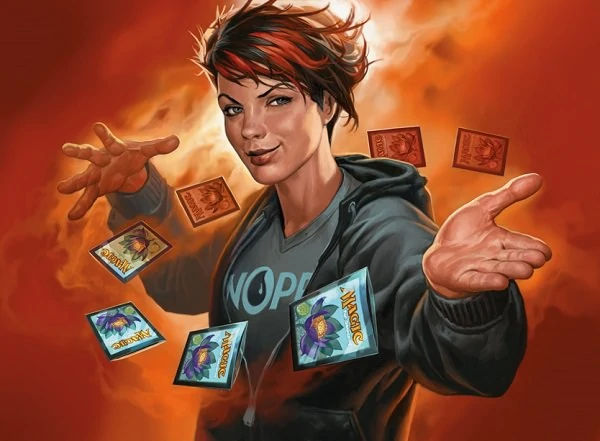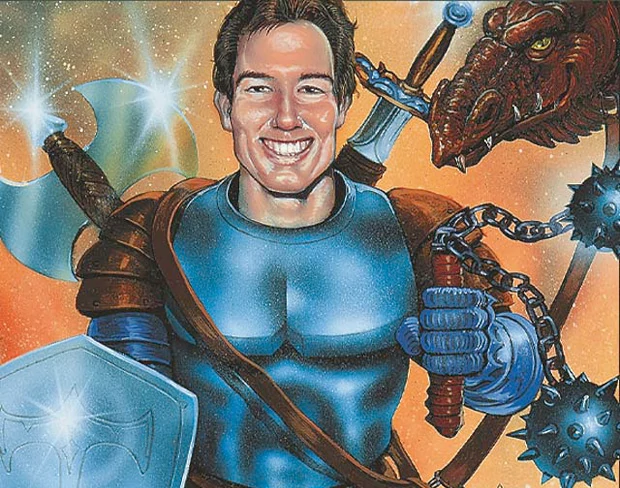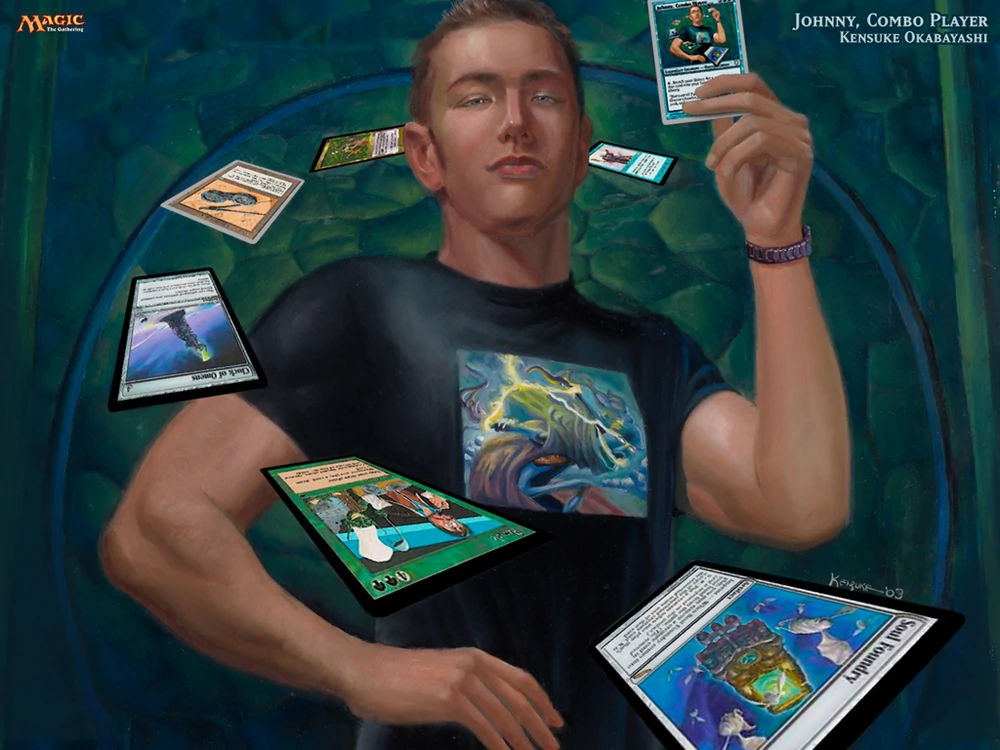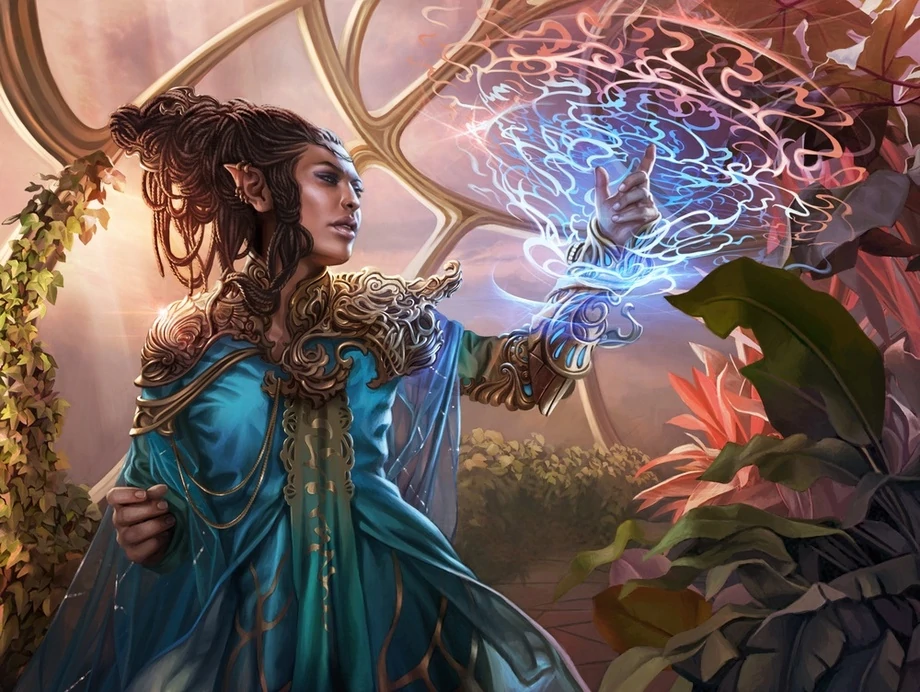Beyond Rule Zero: Competitive isn't an Insult

Hi, my name is Amanda Stevens and I'm a recovering Spike. For those unaware, a long time ago Mark Rosewater wrote "Making Magic: Timmy, Johnny, and Spike" in which he broke down Magic players into three psychographic profiles.
A "psychographic profile" is a fancy way of saying the different ways people are motivated to play the game. And Spike? Spike is the type of player who enjoys Magic: the Gathering as a competitive game, picks cards for their decks because of their competitive viability, and mostly picks decks because they have a high chance of winning.
I open this week's Beyond Rule Zero this way because it's something I've experienced a lot as a player dating all the way back to 2011 - the broader Commander community views "competitive" as bad.
Let me explain.
Competitive as the Enemy of Good

A lot of my friends who play Magic are not competitive players. The closest they've come to organized play is playing in a store's pre-release. A small handful have tried Modern or Pioneer or Standard - but with no long term commitment to the format or any desire to become professional Magic player let alone any aspiration to excel in the selected format. Any form of organized play was more like a continued extension of their hobby as a Magic player. No different than their interest in playing Commander.
Which is fine and good and valid. I say this more as a reference point. My friend's primary experience with competitive Magic players is often with people we refer to as grinders; the Spikes who play every event to grind out experience and payouts. These players often don't leave a glimmering impression. And so when my friends found out I was a former grinder myself, they originally associated me with people they didn't enjoy playing with. I can understand why.
Being a competitive player at an event, whether an FNM or a MagicFest, is about doing as well as possible. When people are focused on winning - sometimes their manners and social niceties go out the window. And for players who are more focused on fun or experience this can be a bit of a culture shock.
It's not surprising that competitive players get a bad rep in that context. I have heard so many stories from people who say they tried to joke around with their opponent and have a good time only to be stonewalled or shut down. The idea becomes that competitive players have one singular idea - winning. Nothing else matters on that path; not enjoyment nor jokes.
Casual as the Paragon of Good

On the other side of the coin - the casual player is viewed as the ideal person to have in your pod. Casual is often equated to being loose with your play, more focused on fun, and probably not the best player. In other words, casual is the guy who is known for bringing the 32 case of beer to the party. Is the beer any good? Probably not. But it's free and the guy makes you laugh -things you want at your party.
If the competitive player is attributed to the Spike psychographic profile, then the casual player is attributed to the Timmy psychographic profile. Timmy is the player that wants to cast big stompy creature or that spell that everyone talks about being cool except way too impractical to cast. Timmy is supposed to invoke the image of the kid you see at FNM who plays Mono Green Stompy. When we think about casual play - we have similar thoughts. Simple, swingy, and linear.
As I said earlier we also equate casual play as riddled with holes. Players who don't fully understand the rules, ask to take things back, and sometimes even build decks without win conditions. Because casual play is often viewed as more about Magic as a vehicle to hang out with friends, a lot of these things that we would otherwise advise against are excused. After all, if winning isn't the goal, does the quality or type of play really matter?
Insert Something Poetic so I Can Talk About Johnny

Honestly, when I was thinking about this article in the shower I knew I wanted to find a way to talk about the three psychographic profiles. Framing the conversation around the negative connotation that comes with being a competitive player made it really easy to talk about Spike and Timmy. After all, they're just two sides of the same coin. But the one problem I kept running into was how do I organically bring Johnny into this conversation? Solution - just don't even try to.
While being a Spike is about playing Magic to win and Timmy is about playing Magic for cool - Johnny is often categorized as playing Magic for creativity. This is highlighted in the Unhinged card Johnny, Combo Player's flavor text which talks about how Johnny will win through a Krark-Clan Ironworks and Grinding Station combo.
Johnnys want you to experience their win alongside with them because it is simply too awesome for you to just scoop to. And I think that in a lot of ways - Johnny is the blueprint of the average deck builder. Someone who comes up with a cool interaction or interesting synergy and painstakingly figures out how to build the rest of their Commander deck around the concept.
Leaving Our Preconceived Notions Off the Playmat

I wanna go all the way back to the very first Beyond Rule Zero where I talked about how we can create better play experiences. I spoke about how we need to be better about articulating the type of game we want to play and what we don't enjoy playing against. It came up this week when I went to my LGS for Commander. Two players in my pod started talking about power levels and I stopped them because I knew it wasn't going to lead to a good pod experience.
So, I lead by example and explained what my deck wanted to do, what I didn't enjoy playing against, and what I was super excited to face. Everyone went around following my example. Our first game was a treat - big smiles all around. The player who led the power level conversation said he wanted to try my way more.
In our second game, the player to my right asked how willing I was to play against a deck with stax elements but wasn't a stax deck. The one deck type or theme that I always say I have no enjoyment playing against is stax. I just feel it muddles up the game experience; especially if opponents aren't experienced playing against it or aren't equipped with good removal pieces.
But, I just had a great game with this player and I had been in other pods with him. His decks are often unique and I find myself going "that card does what?!" a lot when I play against him. So, despite my general dislike of stax pieces I told him I could give it a go. Was I happy to see cards like Winters Orb or Angel's Trumpet - no. Was the game a blast any way? Oh, hell yeah. Okay, maybe in part to my Rashmi, Eternities Crafter deck popping off.
What I am trying to get across with this anecdote is this - what we often expect isn't always what we get. My table was not expecting a toolbox combo deck when I said I was playing Alesha, Who Smiles at Death. Even when I explained it to them, what they played against defied expectations and the players thought it was neat. I thought I would feel like I was taking bitter medicine while I played against a Mono White deck with stax pieces. Instead, I enjoyed the challenge presented in front of me as I tried to work around the obstacles. Similarly, just because someone says they are competitive or are playing a competitive deck doesn't mean it will be a cutthroat experience.
I want you all to walk away from this article thinking about what you can take away from trying different play styles or from playing against different play styles. I want you to think about how you can articulate why a certain type of play experience isn't what you enjoy. And I want you to give being a little bit more competitive a go. You never know what adding a tangible win condition to your deck will feel like or how it could add to the experience of your pod.